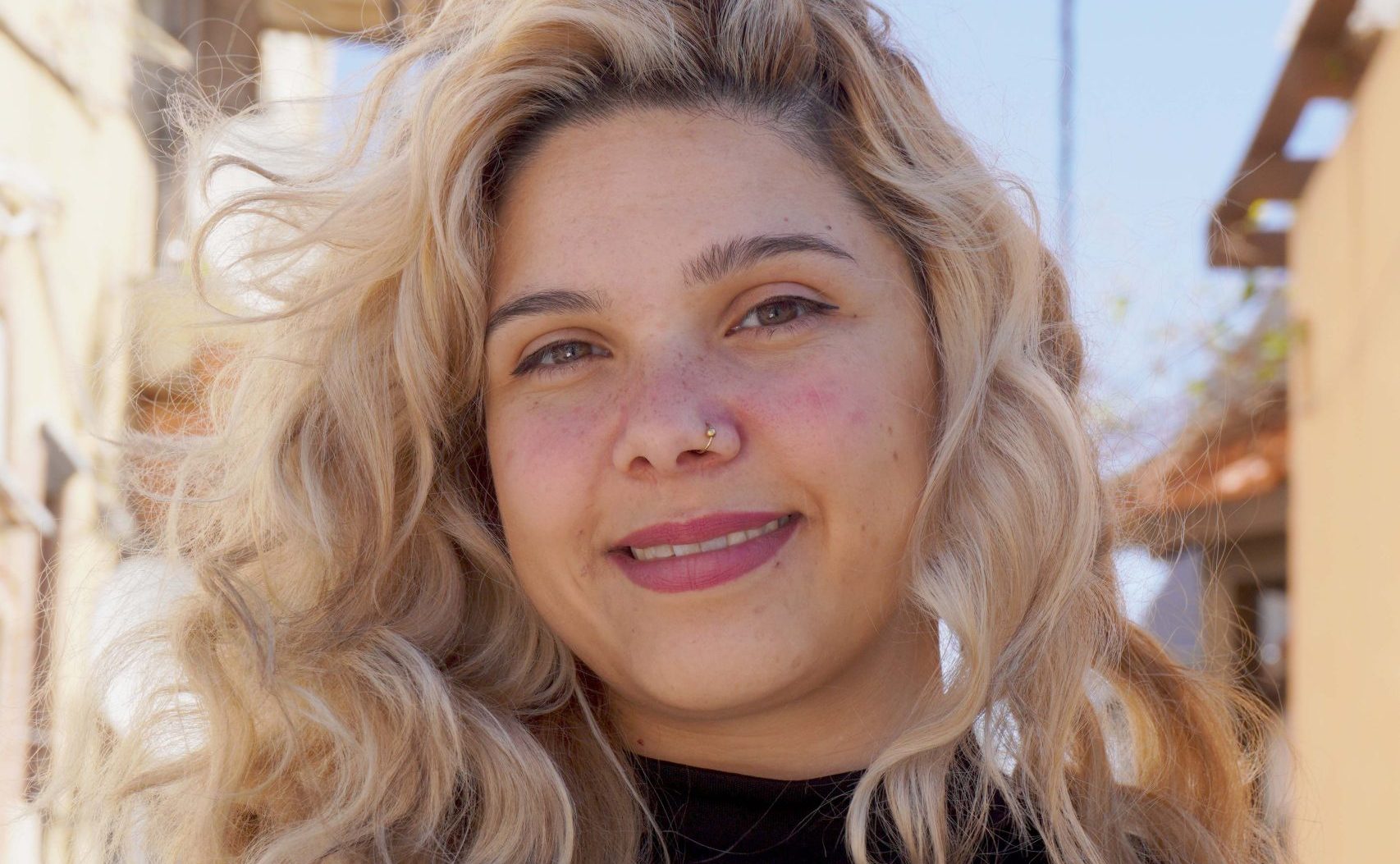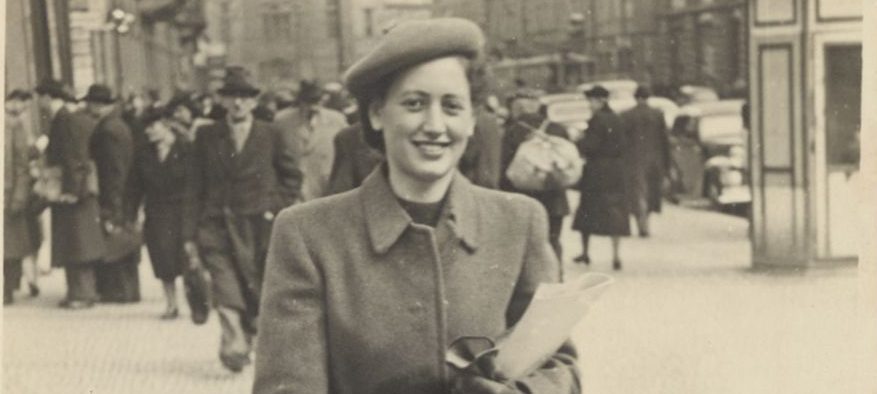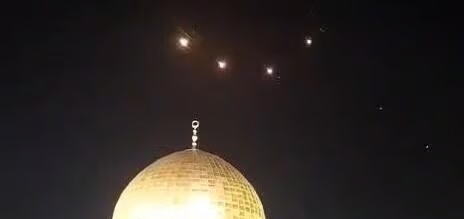On October 7th, my family was under siege in a shelter in our home in Sderot. The pictures and videos kept coming to me through the family WhatsApp group, slowly creating a horrendous picture of what was happening in the South: Hamas terrorists were boldly entering the cities and settlements around the Gaza Strip, massacring everyone they met, and freely “touring” my city, Sderot.
By chance I wasn’t there that day. A last-minute decision not to go to my mom for the second Sukkot holiday and to stay home, saved us and the children from having to deal with post-traumatic stress, which exists at both the national and family levels, but lucky for us – not the personal. It’s possible that my partner would have had to be hospitalized in a psychiatric institution if she had been in Sderot that day. My children would have carried an unimaginable emotional trauma at their young age. God forbid.
“Do you still believe in them?”, I get asked quite a lot. “Them” are the Palestinians. “How is it you don’t want them all dead?” I was asked after I published an article about Be’eri and the atrocities we were exposed to there. “I’m able to separate the Palestinians from Hamas”, I answer. I listen to my heart, which knows Palestinians and doesn’t see all Palestinians as one sadistic, murderous cohesive unit.
The Walls
My collaboration with Palestinian women, from both Israel and the West Bank – has grown in the past few years out of my internal insistence on understanding the conflict without a mediator. I wanted to speak to women like me, who could talk to me at eye level and tell me the Palestinians story from their point of view. Without the media, without politicians and without slogans.
“The policies of de-humanization and putting up walls between us, are the ways to maintain the occupation”, my Israeli-Palestinian friend and dialog partner, who unfortunately must remain anonymous, tells me wisely. “To force people not to feel or know – and not just at the informative, but the emotional level as well. When something grabs your heart, that’s what really matters”.
This same anonymous friend lives in a community near Hebron. She is an activist and a moderator of Israeli-Palestinian dialog circles. “In the Palestinian narrative Hamas is perceived as an organization opposing the occupation, freedom fighters, and not a terrorist organization. For the Palestinians, Hamas itself is the Palestinian narrative”, she says.
Even after what happened on October 7th? I’m trying to understand. “Yes. Many Palestinians were happy about what happened on October 7th”, she answers me honestly. “They saw it as part of the revenge for the occupation and the struggle to liberate Palestine.” A feeling of suffocation comes over me as she speaks.
Screw Hamas
All of us were left speechless on October 7th. My Palestinian friends sent me messages of comfort and concern about my family, and even offered their homes to us for shelter. I was familiar with this protective approach before October 7th, when we were in Germany on a shared project. When the environment felt hostile to the Israelis, my Palestinian friends protected me. In a place where the balance of power was turned upside down, I felt safe with them.
“It’s hard right now in Palestine to zoom out and understand what Palestinians are feeling,” this same friend continues. “A friend of mine who works in a peace organization told a colleague that what happened on October 7th doesn’t represent her, that she condemns it. Most of the Palestinians attacked her.”
Since October 7th I haven’t asked her specifically about her opinion of Hamas and its actions. I felt her shock, her concern for me, my family and my mother who was left in Sderot, and that was enough for me. The partnership which I’ve created with Palestinian women doesn’t look for statements, doesn’t demand condemnation. I need to feel humanity towards me and the horror that my family went through. I demand the same thing from myself when it comes to them. If I don’t know what’s happening to their families and friends on the West Bank and in Gaza, how can I feel and participate in the difficult human experience created by this war?
“I say, screw Hamas. But if I say that to people who see Hamas as a resistance movement, they’ll call me a spy who doesn’t belong to Palestine.”
I understand this conflict of identity. How free are you to express complex opinions when talking to your family, friends and acquaintances? When my people are soaked in blood and the dominant narrative is “flatten Gaza” and kill unfeelingly, if I express compassion I’ll be marked as a traitor. It’s the same on both sides: It’s hard to talk politics these days. Even within the Israeli-Palestinian partnership. We do it with great sensitivity. We discuss the war, each of us trying not to trample on the other’s pain.
Perspective
“Not only is it possible to distinguish between the movement for the liberation of Palestine and the pro-Hamas crowd, it’s essential for the survival and integrity of the Palestine liberation movement to avoid combining the two”, writes Elika Leben, an Iranian opposition activist, in a post on Instagram.
Elika presents an interesting and complex discussion which is very lacking in today’s social media networks. “Not only is it possible to distinguish between Isarel’s right to exist and the expansionist ideals of the far right, it is essential for the survival and integrity of Israel’s right to exist, to avoid mixing the two. This doesn’t mean that these two groups don’t overlap, but they remain independent. They are not their extremists.
Air – her words give me air – and what a pity that there aren’t enough similar words in our languages. None of us, Israelis or Palestinians, can express ourselves in such a complex way in the public space. We are able to do that, if at all, only in private conversations.
“There is no room for nuance in the Western perspective of the Middle East”, Elika continues. “There is a fixed use of absolutism. The demagogy relies on the hatred between two groups or incitement towards tragedy to seal off any horizon for discussion. We must bear in mind humanity, nuances, duality, compassion. We must enable those who are suffering to grieve. We must provide a place for pain. We must allow them to be mistaken as well as justified in their odyssey of suffering.”
These words by Elika, who herself lives under a repressive regime in Iran and understands the complexity of life in the Middle East, wisely explain the tension in a society where extreme voices are the most thunderous. This is the dichotomy of the dialog that is part of the Western view, tosses aside everyone and everything that does not fit its agenda. This view has a superficial view of the situation, with no historical reference (and a laziness that borrows the language and discussion from other areas, e.g. colonialism – importing it as is, is simply irrelevant to this country), whose historical roots spread deeply throughout the intertwined history of the Jewish people and the Palestinian people, whose language grew one from the other, and whose customs, characteristics and history maintain an ongoing dialog, going back thousands of years.
Which Pain Should We Live With?
“As a people, we need to choose which pain we agree to live with – the pain of death, or the pain of disagreement”, says Manar (not her real name). She is a 1948 Palestinian (i.e., an Israeli citizen), who works with me on training Politically Corret journalists.
“If we choose the pain of disagreement, then yes we will hurt one another with words, but that’s better than hurting each other with bullets. I prefer for you to be angry at me for a week and not speak to me, but we won’t start shooting each other. We’ll just agree that we don’t agree. We might say painful things, but that is the pain of healing. The pain we’re feeling now is the pain of destruction, not of creation.”
Her words give me a new understanding. We as a people, continue to choose the pain of death and grief over the pain of disagreement or argument. We allow men to dictate the narrative that “war is the only option” and there is no choice but to sacrifice more and more lives, even though we have enough experience to know there are other ways. There are other ways.
I ask her about partnership in the current situation and she says that in her opinion, partnership now is critical. “It’s no longer possible to ignore the situation. We can’t pretend there’s no problem, that there’s nothing to talk about, and that we can live together happily,” she says and explains. Our supreme goal is to stop wanting to hurt each other all the time. You’re not going to be able to do away with either of the peoples living here – not the Jews and not the Arabs. My common sense tells me that if we’re stuck here together, let’s sit and discuss how we can avoid killing each other.”
“I need to hear your narrative and you need to hear mine, and we need to respect each other’s narrative. From there – our shared pain – we need to work together”, my friend from Hebron completes the picture.
If there’s something I respect in our relationship, it’s that she doesn’t force me to deny my Jewish, Israeli or Moroccan identity. These in fact have become meaningful parts of our connection. First of all, even though she worked with Jews in the discussion circles, she didn’t meet any Jews of Arab, Moroccan background. She was surprised to hear how much some of our traditions are similar and communicate with one another. The feminist social class discourse which developed between us felt very similar. My experience with feminists from a higher social class, where you are never smart, educated or gifted enough, has been recognized and validated in the Palestinian space.
I hear quite a bit about leftists who have “sobered up” since October 7th and I wonder what they’ve sobering up to, the idea of peace or who is standing opposite them? How many of them have drafted ideas and statements about the conflict from reading articles, and not from their own ties and real, non-mediated acquaintance with Palestinian partners? How much of this sobering up is related to the emotions that have awoken now, as they put themselves in the shoes of Israeli Jewish women, but first gave up that same identification and neutralized itself from it, in the name of the partnership?
Emotional Partnership
“The only partnership that can endure this kind of situation during wartime, the only thing that can be done, is to talk about the emotional side. How do you feel? Was anyone hurt? Have you lost a friend? A family member?” says my friend from Hebron. “The Palestinians are suffering, the Israelis are suffering. You can’t compare emotions because it is just pain. The pain of loss in Gaza and the pain of loss of life on October 7th. Fear of the missiles, these are identical feelings – and this is the only thing we can work with now.”
The emotional dialog vs. the intellectual dialog is a critical component of the conversation, the Israeli-Palestinian dialog and partnership. A dialog that takes place mostly in women’s and feminist space, as opposed to the masculine leftist space, that prefers to ignore the personal, human experience in favor of the intellectual argument. These are spaces where I’ve never found myself, because I chose not to adopt a dialog alienated from my Israeli-Jewish identity. These are spaces that insist on talking about Israel in terms of a Western colony and ignore those of our people who were forced to flee the Arab countries when the State of Israel was established, and their Jewishness targeted them as enemies: Lebanon, Tunisia, Iraq, Syria, Yemen, Morocco and more. How can I call myself a colonialist when I have no country to return to?
“Real partnership”, explains Manar, “is always having a space where you can talk. Speak the truth, offer an opinion even if it’s not popular. To know you’re being listened to, that you and your opinion will be taken into consideration.” I ask for myself and for all of us true human partnership, not one that is separate from our identity; rather, that strengthens it while remaining sensitive and humane towards other identities – and doesn’t ask anyone else to negate their identity.
Liberate the National Ego
“Liberate the national ego that says that my existence must come at the expense of another person’s or group’s existence”, says Manar in our conversation. “Liberate the national ego so that you will have the ability to accept the pain of the other side. As long as you feel like you’re the only victim, you will be unable to identify with the person opposite you. Our cooperation doesn’t exist because I want to bring you over to my side; rather, I want us to find the best way for you so that we can exist.”
To remove any doubt, I am cognizant of the balance of power between Israeli Jewish women and Palestinian women – both those who are citizens of Israel and those who are not. Partnership means first recognizing the power and privilege of each, and paying special attention to the dialog and status from which each one comes. Disengaging from power doesn’t mean denying the balance of power; rather, it means recognizing it and acting from within that recognition.
“True partnership has to be based on equal power,” responds Manar to the question of partnership. At the beginning of our conversation, she mentioned that Jewish-Palestinian partnership is very difficult to believe in, exactly for that reason. “These are the partnerships we need to see now. Where we can express a variety of opinions and create an amazing mixture of opinions. This is the only way this can work. Why is it that in our partnership between Politically and Aalam, our designs are made collaboratively? So that we can make the best decisions for all of our participants. We have to sit together and make decisions based on the needs of everyone and take them all into consideration.”
The feminist response to force is not more force, but an ongoing passage between the personal and the political, between the balance of power and privilege, where sometimes I’m the oppressor in the equation and sometimes I’m the oppressed. The feminist movement has never embarked on a killing spree of men as resistance to the murder of women. We have never used war to bring women to the center of power, or to destroy oppressive patriarchal structures. And here as well, in response to the murder, abuse and rape committed by Hamas, we mustn’t demand a solution of violence that results in more killing, more announcements of fallen soldiers, and more terrible scenes from Gaza and Israel.
“After the war, Anjad, after the war is over we’ll be able to work on the well being and support of people who are working to build peace”, concludes my friend from Hebron. Because the migration between our souls which are seeking solace, and the social-political movement is meaningful and critical, certainly these days.






